Sudan
The Sudanese capital shook Tuesday night under gunfire and explosions on the fourth day of a power struggle between two generals still indifferent to calls for a cease-fire, after fighting that left nearly 200 people dead.
At the request of the international community, the paramilitaries of the Rapid Support Forces (RSF) of General Mohamed Hamdane Daglo, known as "Hemedti", had announced that they would commit to a 24-hour truce. The army said it had not heard anything about it.
At the time of writing, 16:00 GMT, the sound of fighting was still resounding in various parts of Khartoum, according to several witnesses.
The RSF accused the army led by General Abdel Fattah al-Burhane, who has been in charge since the 2021 coup, of "violating the truce", while their own men continued to fire heavy weapons in the streets, witnesses said.
Military planes are still flying over the city and have already hit four hospitals in Khartoum, doctors said. Across the country, one of the poorest in the world where health has been on its knees for decades, "16 hospitals are now out of service".
The Red Cross and the World Health Organization (WHO) have called on the warring parties to ensure access to those in need, as fighting is concentrated in Khartoum and the western Darfur region.
The head of the WHO, Dr. Tedros Adhanom Ghebreyesus denounced "the looting of some health facilities and the use of others for military purposes.
In a country where hunger affects more than one in three people, humanitarians and diplomats say they can no longer work: three employees of the World Food Program (WFP) were killed in Darfur.
- Cloistered inhabitants -
But the calls of the G7, the UN and the United States to put an end to the violence do nothing: men in fatigues, sometimes turbaned like the nomads of the Darfur region, continue to reign terror in Khartoum, while the army's air raids affect densely populated areas.
The majority of the population is confined to their homes without electricity or running water, and their food stocks are dwindling since the political conflict between the two generals degenerated into a pitched battle on Saturday.
Civilians and diplomats urged them to agree on a timetable and the conditions for integrating the RSF into the army in order to relaunch the democratic transition, but failing to reach an agreement, they took out their weapons.
On the fourth day of violence, the few grocery stores that are open warn that they will not last much longer without restocking. Residents are beginning to leave for the province bordering the south of the capital where there is no fighting.
Under a sky lined with columns of thick black smoke over army and paramilitary headquarters, others venture out in search of food or a generator.
In Khartoum, "we haven't slept for four days," Dallia Mohamed Abdelmoniem, 37, told AFP.
The violence has left more than 185 people dead across the country since Saturday, according to the UN, and pushed several NGOs and UN agencies to suspend all aid.
On Monday, an American diplomatic convoy was shot at and the European Union ambassador was "attacked in his residence" in Khartoum. Sudanese diplomacy, loyal to General Burhane, accused the RSF.
- Hospitals in distress -
The UN has counted 1,800 wounded, and surely many more as access is so difficult for patients and doctors alike.
In Darfur, the stronghold of General Daglo and thousands of his men who carried out atrocities during the war launched in this region in 2003, Médecins sans Frontières (MSF) announced that in three days it had received 183 wounded, "many of whom were children" in its last functional hospital.
It is impossible to know which force controls what. The two camps say that they are holding the airport, the presidential palace and the headquarters of the general staff.
The army denounces "a coup d'état" by "foreign-backed rebels" while Hemedti says he is fighting "for freedom, justice and democracy".
This slogan of the 2019 "revolution" was until recently chanted in the streets by pro-democracy activists wanting to end military rule, which has been a constant in Sudan since independence in 1956.
For political scientist Amr Chobaki, "the current situation is the result of the mistakes of the Bashir regime and the transition period that should have, after the fall of Bashir (in 2019), discuss the unification of the armed forces.
"The civilians wanted to dismantle the old regime but what was dismantled were the political forces and the army," he explained to AFP.
The big Egyptian neighbor, for its part, is multiplying regional contacts for "a return to the negotiating table".




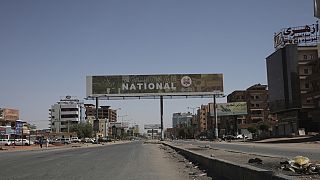
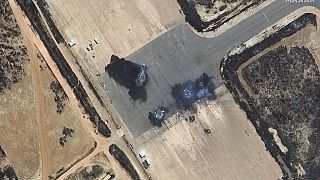
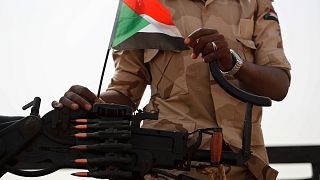
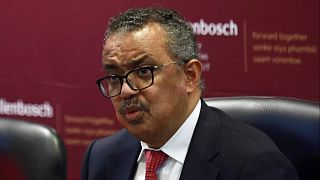
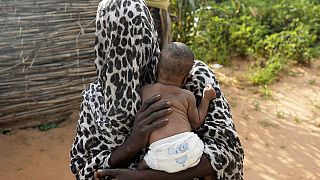



01:05
Ethiopia's mega-dam on the Nile is "now complete", Prime Minister says
01:49
Sudanese refugees in Chad face deepening humanitarian crisis
01:41
UN warns of looming famine in Sudan, Gaza and 3 other global hunger hotspots
01:49
UN warns of impact Sudan's humanitarian crisis is having on Chad
Go to video
Sudan: Hamdok not convinced by the new Prime Minister
01:32
Five humanitarian workers killed in Sudan after attack on aid convoy